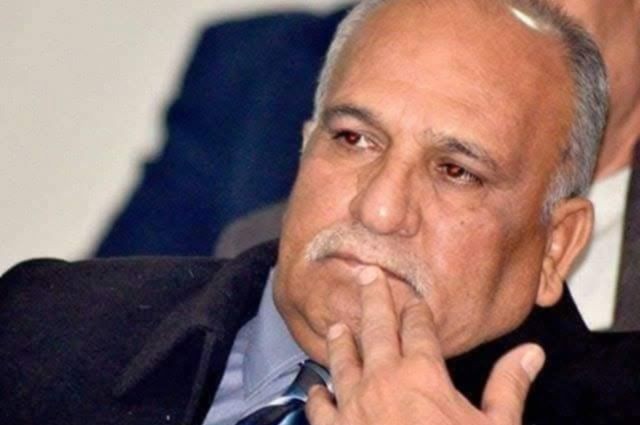ABBAS AL-WAIS
"Un morso dai resti di un pane amaro" di Abbas Al-Wais
Mentre Ashraf era seduto sul marciapiede della sua strada di quartiere come un modo per sfuggire al clamore dei suoi bambini affamati, dove le ombre del passato incontrano la luce del presente, sentiva che la vita gli aveva tolto molte cose. I suoi sogni sparsi sulle mura della prigione, i suoi dolori che si erano radicati nel suo cuore come ferite che non guariscono, poiché tre anni dietro le sbarre e nelle celle avevano rubato le sue speranze come avevano strappato i battiti del suo cuore, anni che avevano cambiato anche i suoi tratti e molte domande senza risposte. Lasciò la prigione per ritrovarsi senza un obiettivo o un lavoro, e la famiglia che aveva lasciato stava appassendo... E i debiti accumulati di denaro che sua moglie prendeva in prestito da amici per pagare i giorni e la crudeltà della fame. Continuava a nutrirsi dei resti dei sogni che aveva perso ogni speranza di realizzare e non possedeva altro che una laurea in amministrazione aziendale e un'energia consumata in un corpo che aveva perso la sua forza. Un giorno, un suo amico gli suggerì una possibilità di lavoro che si adattava al suo livello di istruzione e alla sua costituzione debole.
Forse questa era una soluzione per alleviare il peso del bisogno, della povertà e della fame in questo periodo di assedio duro che circondava il paese con un blocco totale, seguito da guerre assurde e irresponsabili e la speranza alla fine del tunnel... Petrolio in cambio di pane e medicine aveva messo a disposizione alcune delle granaglie che languivano negli angoli dei mulini e dei loro magazzini, per essere fornite in sacchi a bocche affamate che avevano assaporato l'amarezza per molti anni.
Osservava i chicchi mentre si spostavano tra le grandi e rumorose macchine per essere macinati e i sacchi con le bocche spalancate alle estremità, che gli riportavano alla mente le bocche secche e affamate dei suoi bambini. Tutto ciò che doveva fare era contare quei sacchi mentre venivano allineati nei magazzini e compilare tabelle con i numeri da timbrare con il logo della fabbrica e la data di produzione.
Le condizioni di lavoro richiedevano di lavorare a turni e di essere presente di notte. Le auto di lusso la sera, persone che sembravano e apparivano come ricchi e influenti, scendevano da esse, girando per i dipartimenti della fabbrica prima di un lungo incontro serale in una lussuosa sala ricevimenti accanto all'amministrazione. Ashraf cominciò a scoprire i dettagli dei mondi segreti di queste visite giorno dopo giorno, e si chiese qual era il segreto della partenza di strani camion che non appartenevano alla compagnia, le cui porte della cabina avevano stampato il suo nome e il suo logo... I fili di questi talismani cominciarono a diventare chiari gradualmente quando Ashraf esplorò le uscite per i sacchi. Rimase scioccato quando scoprì due linee di produzione, la prima delle quali conteneva farina di scarsa qualità con impurità di sabbia, ghiaia e chicchi rovinati, distribuita al pubblico attraverso le uscite degli agenti governativi alle città, villaggi e paesi sotto il sistema della tessera annonaria, e un’altra linea di produzione con farina di qualità migliore venduta a commercianti e ricchi a prezzi esorbitanti. Provò a chiedere ad altri di questa strana dualità di produzione, ma uno di loro gli consigliò di stare zitto e disse: "Signore, non sono solo i proprietari della compagnia a guadagnare a spese dei poveri e dei bisognosi come noi, ma ci sono altri che sono partner degli influenti nel governo, e se vuoi mantenere il tuo lavoro, l'unica cosa che devi fare è stare in silenzio." Ashraf si chiese, tenendo in mano un pugno di ciascun tipo di farina, questo è ciò che i miei bambini e i poveri come me mangiano, e nella sua mente si affacciarono le immagini di loro che masticavano un pane secco e amaro e di sua moglie che falliva in tutti i suoi tentativi di purificarlo dall’amarezza. La sofferenza gli si infilava nel cuore e sentiva che il silenzio era complicità, vedendo il mondo intorno a lui annegare nel fango della miseria e della povertà, e ricordava le malattie intestinali, il vomito costante, le intossicazioni alimentari e la disidratazione dei suoi bambini e degli altri a causa del pane prodotto con cereali adulterati che non erano nemmeno adatti come mangime per il bestiame. Pensò di portare la questione alla luce, dato che la fonte di approvvigionamento del grano era lo Stato, e fece un accenno a uno dei proprietari dei mulini mentre percorreva i corridoi e i dipartimenti, pensando che avrebbe capito i suoi accenni. Uno sguardo profondo del proprietario, pieno di disprezzo e rabbia, fu sufficiente per farlo tacere e rimanere intrappolato in un ciclo senza fine. I lavoratori non si stupirono quando il giorno successivo lo licenziarono dal lavoro. Quando si rannicchiò sui bordi del divano a casa, i più piccoli intorno a lui saltellavano come conigli con corpi emaciati e volti gialli, un dipinto solitario di un pittore oscuro che non possedeva molti colori... Tè dolcificato con succo di dattero e un pezzo di pane, l’ultimo di una pagnotta che era la più amara, ma la più onesta, un’amarezza che non si limitava alla pagnotta, ma a un morso.
A bite from the remains of a bitter loaf of bread" by Abbas Al-Wais

